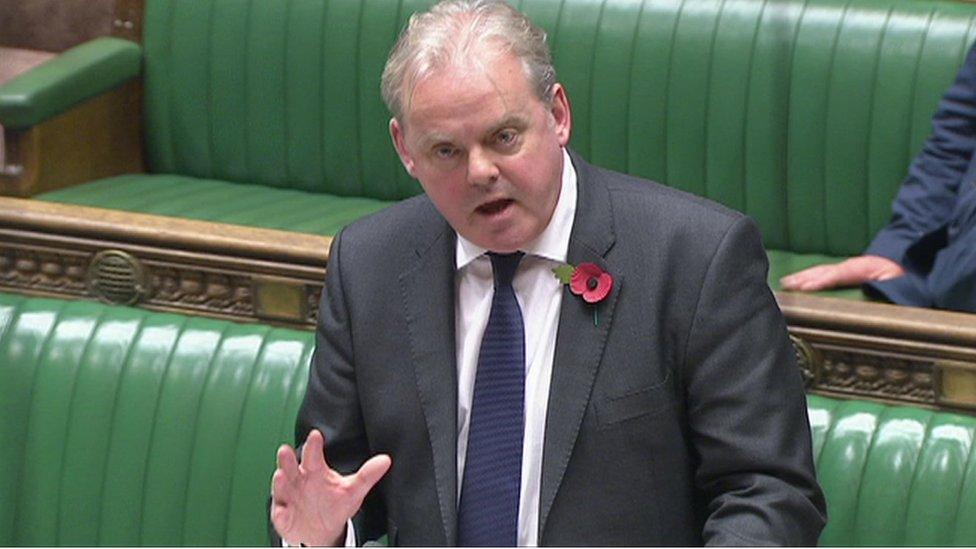Brexit: Bebb says Corbyn government less damaging than no-deal
- Published
- comments
Guto Bebb said MPs should consider Jeremy Corbyn's plan
A Welsh Conservative MP has said a short-term Labour government would be less damaging than the long-term impact of a no-deal Brexit.
Aberconwy MP Guto Bebb said Tory rebels and opposition parties should "take seriously" Jeremy Corbyn's proposal to topple Prime Minister Boris Johnson.
However, Mr Bebb said there were "other alternatives open to us".
Plaid Cymru MP Liz Saville Roberts said she was disappointed Mr Corbyn wanted a general election before a referendum.
Mr Corbyn's request for support for a vote of no confidence in Mr Johnson's government came in a letter sent to opposition party leaders and a number of Conservatives opposed to a no-deal Brexit.
The Labour leader said the UK government had "no mandate for no-deal" and he would form a "time-limited" government with the aim of calling a general election.
Mr Bebb quit his post as a junior defence minister last year in protest at what he saw as concessions to Brexiteers by former Prime Minister Theresa May.
He described the Labour leader's proposal as "an interesting development".
"I think it's about time that the Labour Party did take its responsibilities in relation to no-deal seriously," he said.
"So as a proposal that has been made, it shows the Labour leadership trying to reach out to other MPs in Parliament.
"So, in as much as moving the issue forward, I welcome the letter."

Jeremy Corbyn sent his letter to opposition parties and a group of Tory rebels
When asked if he would support a government led by Jeremy Corbyn, Mr Bebb said: "I think there are other alternatives that are open to us.
"But I do think that those who have said that they will do anything necessary to stop the long-term damage of a no-deal exit must take seriously this type of offer.
"So I think there are other proposals that can be taken in terms of ensuring that no-deal can be taken off the table.
"But I certainly take the view that a short-term Jeremy Corbyn government is less damaging than the generational damage that would be caused by a no-deal exit."
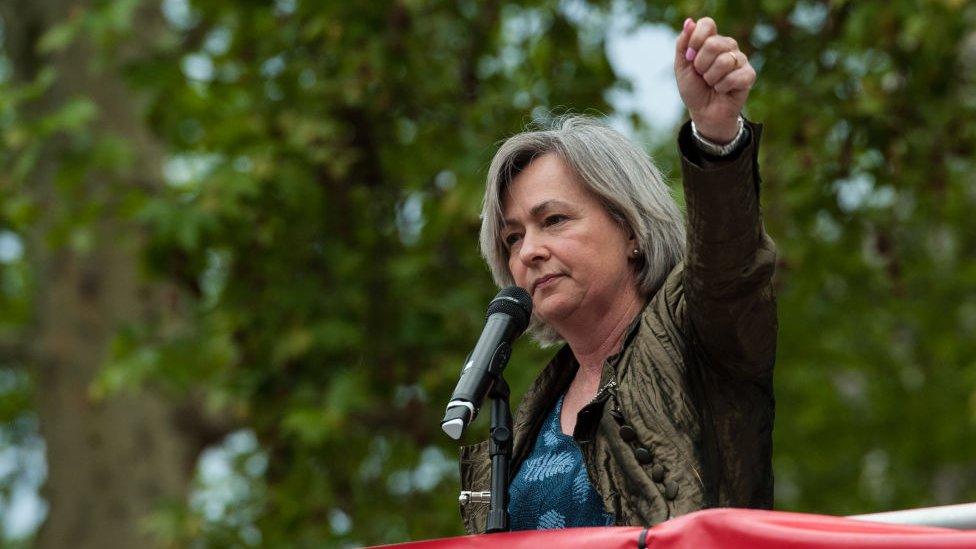
Liz Saville Roberts said she was "grateful" but "disappointed" in Mr Corbyn's plans
Opposition parties have given a mixed response to the Labour leader's offer.
Ms Saville Roberts, leader of the four-strong group of Plaid Cymru MPs, said: "We are very much open to the idea of a unity government.
"It doesn't matter who leads it, but its number one priority must be stopping Brexit - that means extending Article 50, delivering a referendum and cancelling Brexit.
"It's extremely disappointing, therefore, that Mr Corbyn cannot bring himself to take the best possible pro-European option - a referendum first, followed by a general election."
Liberal Democrat leader Jo Swinson and Change UK leader Anna Soubry said Mr Corbyn would not command a majority in the Commons and rejected his proposals, while Ian Blackford of the SNP and Green MP Caroline Lucas both prioritised blocking a no-deal Brexit ahead of a general election.
Downing Street said Mr Corbyn would "overrule the referendum and wreck the economy" if he became prime minister.
Boris Johnson has said he wants a deal with the European Union, but insists the UK must leave the bloc by 31 October "do or die".
Allow X content?
This article contains content provided by X. We ask for your permission before anything is loaded, as they may be using cookies and other technologies. You may want to read X’s cookie policy, external and privacy policy, external before accepting. To view this content choose ‘accept and continue’.

Welsh Conservative reaction to Mr Corbyn's letter was scornful, with Monmouth MP David TC Davies tweeting, external that the plan was like "a coup d'etat of the sort favoured by Marxist dictators in banana republics from whom he draws inspiration".
Paul Davies, Tory group leader in the Welsh Assembly, said the plan was "unnecessary and undemocratic as the people of Wales voted in good faith for us to leave the EU".
"Boris Johnson is working hard to secure a good deal for the UK's exit from the EU," he added.
"Posturing by Mr Corbyn achieves nothing but to further disrupt negotiations and extend this period of uncertainty."
What is a vote of no confidence?
It is a chance for MPs to hold a vote on whether they want the government to continue - and it has the power to trigger a general election.
If the government loses a no-confidence motion, the prime minister - or anyone else - has 14 days in which to form a government backed by a majority of MPs.
If no-one was able to form a government and win a confidence vote, then a general election would be called.
The prime minister has a working majority of just one in the House of Commons, with the backing of Northern Ireland's Democratic Unionist Party.

- Published15 August 2019
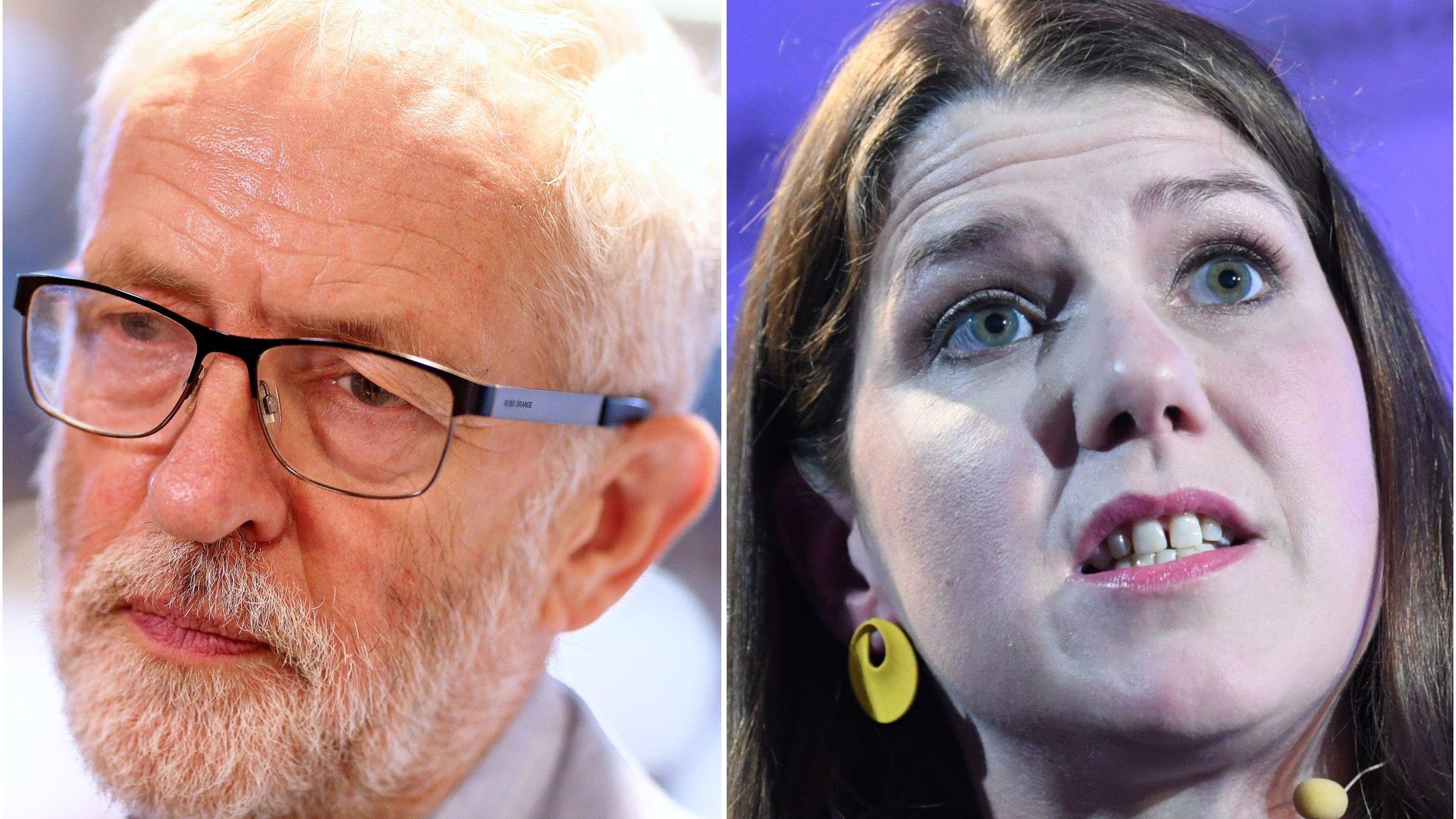
- Published7 December 2023
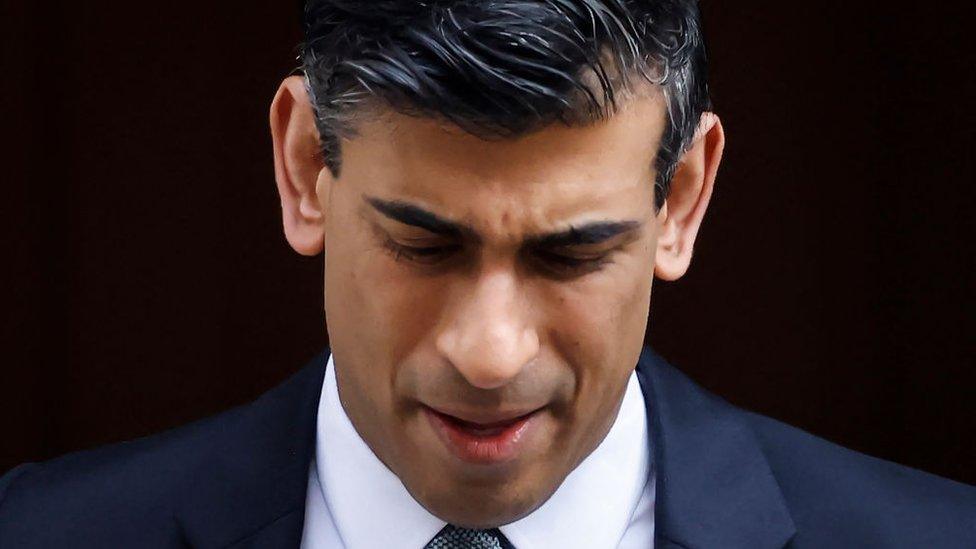
- Published3 September 2019
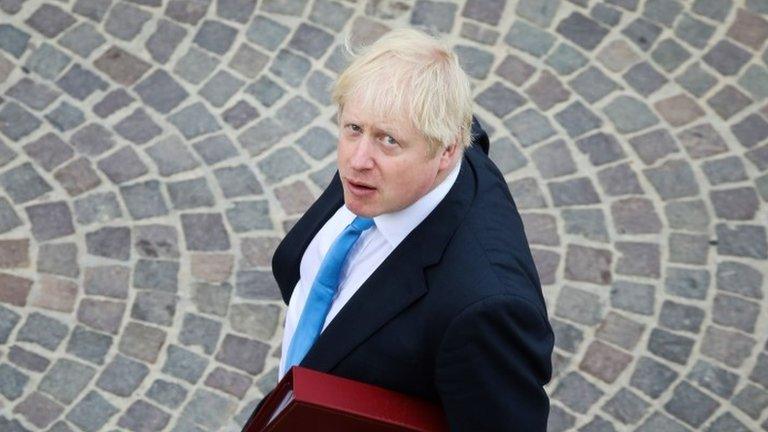
- Published15 August 2019
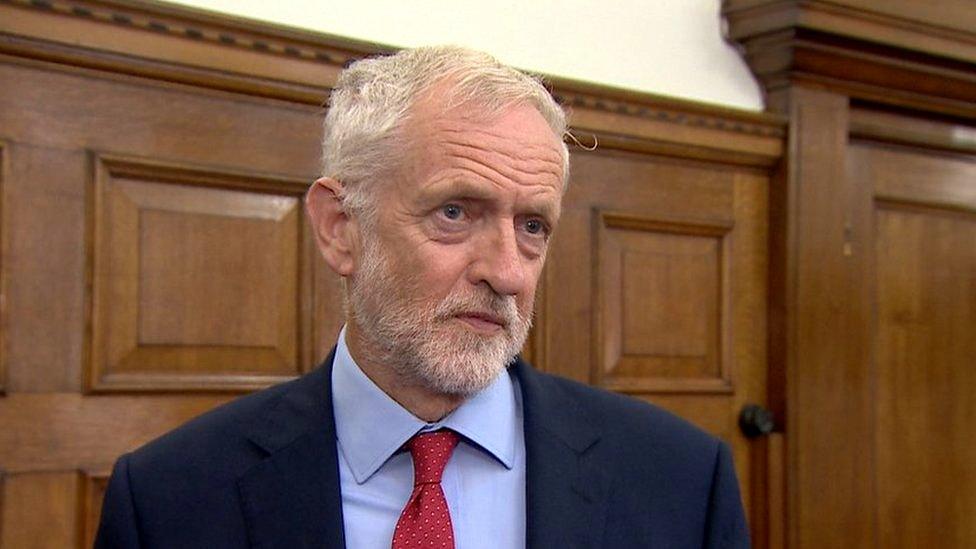
- Published14 August 2019
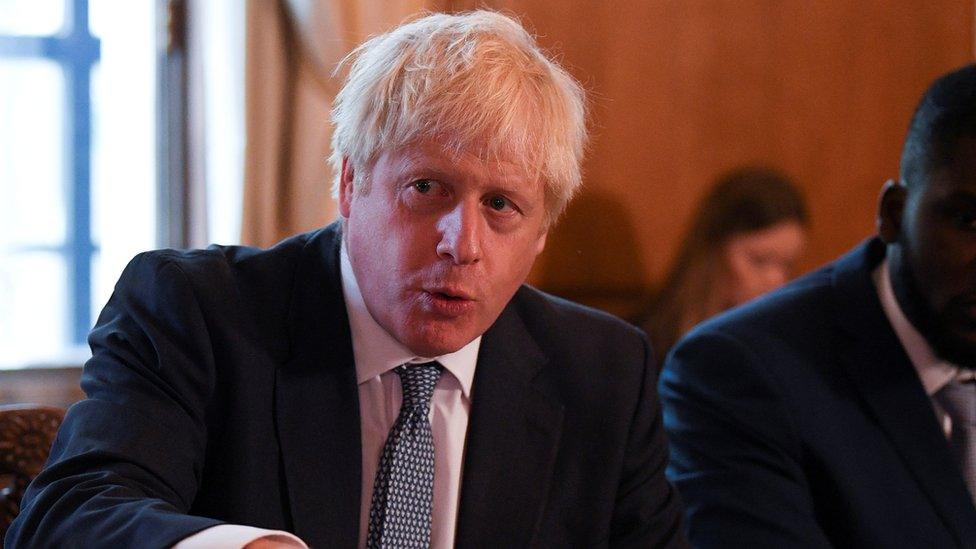
- Published17 July 2018
